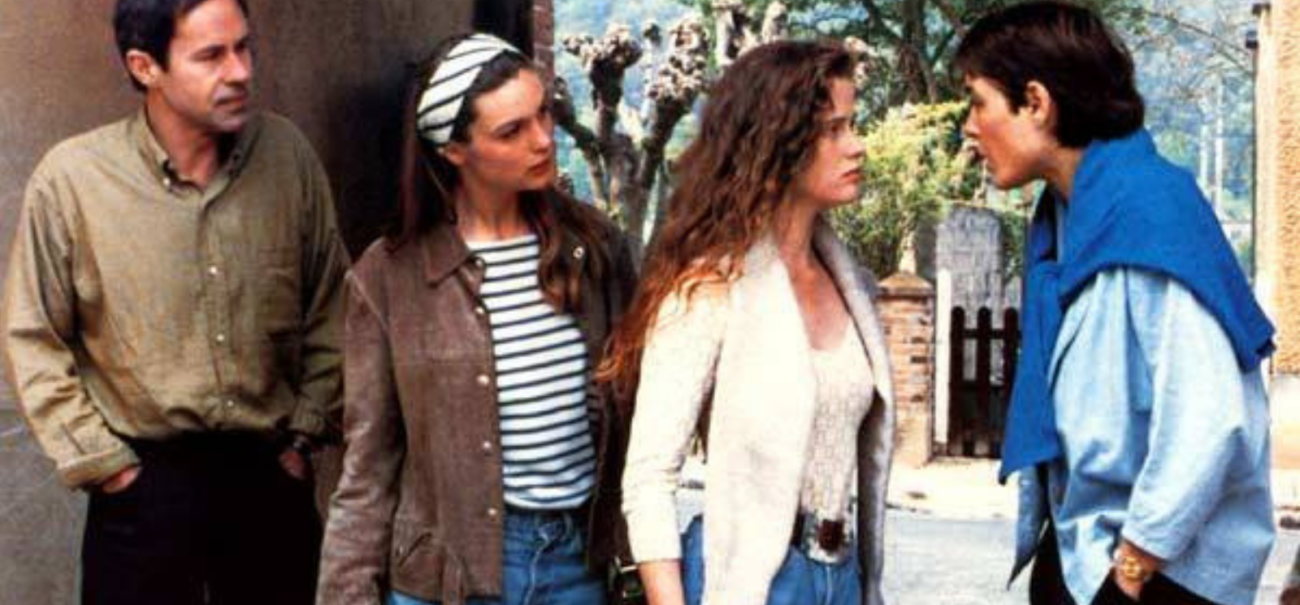I watched Conte de Printemps. It's Been A Long Time Since I Last Watched a Film
Conte de Printemps is the contrary to biographical films. But that's not what I'll talk about here.
If there is a type of film contrary to biography, Conte de Printemps is one of them.
I’m not the biggest fan of biographical films, because they are usually not as detailed or objective as films that take place in a short period of time. In the same way, I’m not too fond of epics as well. For me, it’s the normal speed temporal flow and trust for the viewers to interpret the film that give a film a cinematic touch. It’s not to say that there’s no good biographical films. I like The Last Emperor, Oppenheimer, and Once Upon a Time in America. But the reason why they are good films isn’t that they tell the story of a person well, but that they bring a period of time in history to life and minimise the friction between character development and story-telling. So, naturally, a realistic film that loosely adheres to the unities will easily grab my attention.
The films starts in a teacher’s chamber, the camera moving slowly as if trying not to interrupt the character’s life. I don’t remember every detail but I know the scenes are unintentional anti-foreshadowing. As the story goes on, we are led to a party which we don’t even know what it’s about until the two main characters began to talk to each other, again, for no obvious reason. It’s worth mentioning that my subtitle was broken for a few minutes, for which reason I’m even more puzzled than I should’ve been, which actually intensifies how “not showy” the unravelling of the film is.
As the story keeps going on, we can tell that the “Conte” is between Jeanne and Natacha’s dad. But even the obviousness of this affair is told in the least deliberate way. They are both not happy in their relationship, but neither is willing to or capable of making any changes. Then they had a little incident that stops at kissing, once. Not long after, it’s the end of the film. For me this film very much resembles a short story, a thin beginning followed by a fainter clue (the lost necklace) then reaching a momentary climax before it concludes like nothing happened.
I’ve been seeing too much advertisement, copy-writing, commercials, short videos, YouTube videos, much more than is healthy for me. Rohmer lets my guard down and swears that he doesn’t want anything from me. I trust what he says and he fulfils his promise.
Conte de Printemps isn’t my favourite film (that’s Playtime, as of 26 Nov, 2024). It’s not even my top ten films. I like how Rohmer tells stories, but I am not too crazy about the story he tells.
I guess I’ll be forgiven if I don’t know what they said exactly when they were discussing “a priori” and stuff. Neither philosophy or art is my favourite topic of conversation in a film. But according to the tacit agreement between me and Rohmer, he’s supposed to be unintentional. Therefore, I’ll treat the explicit lines as nothing more than conversations (not that I can’t understand, no).
I’m not sure if this is a common feeling or not, but I’ll say it boorishly to see if anyone feels the same: Natacha wants Jeanna to be her dad’s girlfriend very early; at some point Natacha begins to like her Natacha’s dad as well; Natacha’s dad likes Jeanne earlier than Jeanne likes him. But for a long period of time, they pretend that it’s not so. It is more interesting to take this point of view to watch the film from the beginning.
So much about the film. I’ll stop embarrassing myself since I know what I look like when I talk about films after Claude’s comment, “The comments section is giving strong ‘I took one film theory class in college and now I’m a critic’ energy.”
